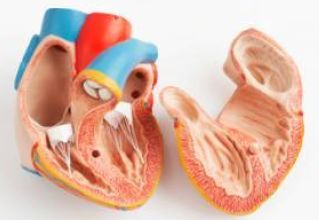Congenital Heart Disease
Congenital heart disease (CHD) refers to a defect in the structure and function of the heart and great vessels which is present at birth. They account for more deaths in the 1st year of life than any other birth defects. Some require urgent surgical correction, whilst others require careful follow-up, resolving spontaneously over time.
The embryonic development of the heart and great vessels is a very complex sequence of events. Any disruption in any part of this complex sequence can potentially result in a congenital heart defect.
Some CHDs may occur in isolation, whilst others may occur as part of various genetic syndromes, such as Down's syndrome, Marfan syndrome, Turner syndrome and DiGeorge syndrome.
Types of Congenital Heart Disease
CHD is often classified as being either cyanotic (where there is a blue discolouration due to a lack of oxygen in the blood) or non-cyanotic.
Cyanotic CHD:
• Tetralogy of Fallot
• Truncus arteriosus
• Transposition of the great vessels
• Tricuspid atresia
• Truncus arteriosus
• Hypoplastic left heart
• Pulmonary atresia
• Ebstein's anomaly
Non-Cyanotic CHD:
• Ventricular septal defect (VSD)
• Atrial septal defect (ASD)
• Patent ductus arteriosus (PDA)
• Coarctation of the aorta
• Aortic stenosis
• Pulmonic stenosis
• Hypoplastic left heart
• Dextrocardia
Symptoms of Congenital Heart Disease:
The types and severity of symptoms depend largely on the type of defect present. Some conditions may present with symptoms at birth e.g. "blue baby", difficulty breathing, weak cry, failure to thrive etc., whilst others may cause symptoms only in later life e.g. coarctation of the aorta. Others still, may not develop any symptoms and have normal physical activity and normal life span.
Treatment of Congenital Heart Disease:
This once again depends on the type and severity of the defect. Some CHDs improve spontaneously without the need for any treatment. Others are so small that no treatment may be required. The more serious defects, however, will generally require medication or surgical correction.
Further Reading
The article above is meant to provide general information and does not replace a doctor's consultation.
Please see your doctor for professional advice.
